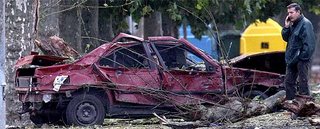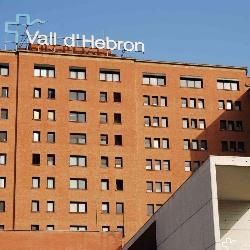Spanish nationality for descendents of exiles
Spanish Nationality for 1.5 million grandchildren of exiles
One and half million people could benefit from a new law which gives the grandchildren of people who were forced into exile during the Spanish Civil War and Franco’s dictatorship the right to apply for Spanish nationality. The new law is part of the ‘Historic Memory Law’ which was passed by parliament at the end of last year.
The government predicts that up to one an half million people could apply for Spanish nationality under this new law which will come into effect on 29th December this year. Under this law people will be able to apply for nationality over a 2 year period until December 2010 although this period could be extended for another year.
It is expected that many people who are entitled to apply for Spanish nationality under the new law will take the opportunity to do so due to the fact that many live in Latin American countries. Nearly half of the people who are affected by the new law live in Argentina and Cuba both of which are currently suffering serious economic difficulties.
The Ministry for Foreign Affairs and Cooperation under Miguel Ángel Moratinos expects justice to approve the new law shortly and Spanish embassies and consulates in Latin American countries, especially Argentina and Cuba, are preparing themselves for an avalanche of applications for Spanish nationality.
Another clause in the ‘Historic Memory Law’ also gives those who fought in the Brigades against Franco in the Spanish Civil war 1936-1939 the right to Spanish nationality. The new law stipulates that those who fought in the Brigades do not need to give up their own nationalities to be able to benefit from taking up Spanish nationality. However the number of those benefiting from this new law is expected to quite low given that there are only around 1000 people still living who fought in the Brigades during the Civil War.
Other measures included in the ‘Historic Memory Law’ will make documents related to Franco’s dictatorship which were previously secret available for historic research and will establish the requirements for the Ministry of Justice to give official recognition to victims of the Civil War and Franco’s repression.
One and half million people could benefit from a new law which gives the grandchildren of people who were forced into exile during the Spanish Civil War and Franco’s dictatorship the right to apply for Spanish nationality. The new law is part of the ‘Historic Memory Law’ which was passed by parliament at the end of last year.
The government predicts that up to one an half million people could apply for Spanish nationality under this new law which will come into effect on 29th December this year. Under this law people will be able to apply for nationality over a 2 year period until December 2010 although this period could be extended for another year.
It is expected that many people who are entitled to apply for Spanish nationality under the new law will take the opportunity to do so due to the fact that many live in Latin American countries. Nearly half of the people who are affected by the new law live in Argentina and Cuba both of which are currently suffering serious economic difficulties.
The Ministry for Foreign Affairs and Cooperation under Miguel Ángel Moratinos expects justice to approve the new law shortly and Spanish embassies and consulates in Latin American countries, especially Argentina and Cuba, are preparing themselves for an avalanche of applications for Spanish nationality.
Another clause in the ‘Historic Memory Law’ also gives those who fought in the Brigades against Franco in the Spanish Civil war 1936-1939 the right to Spanish nationality. The new law stipulates that those who fought in the Brigades do not need to give up their own nationalities to be able to benefit from taking up Spanish nationality. However the number of those benefiting from this new law is expected to quite low given that there are only around 1000 people still living who fought in the Brigades during the Civil War.
Other measures included in the ‘Historic Memory Law’ will make documents related to Franco’s dictatorship which were previously secret available for historic research and will establish the requirements for the Ministry of Justice to give official recognition to victims of the Civil War and Franco’s repression.





